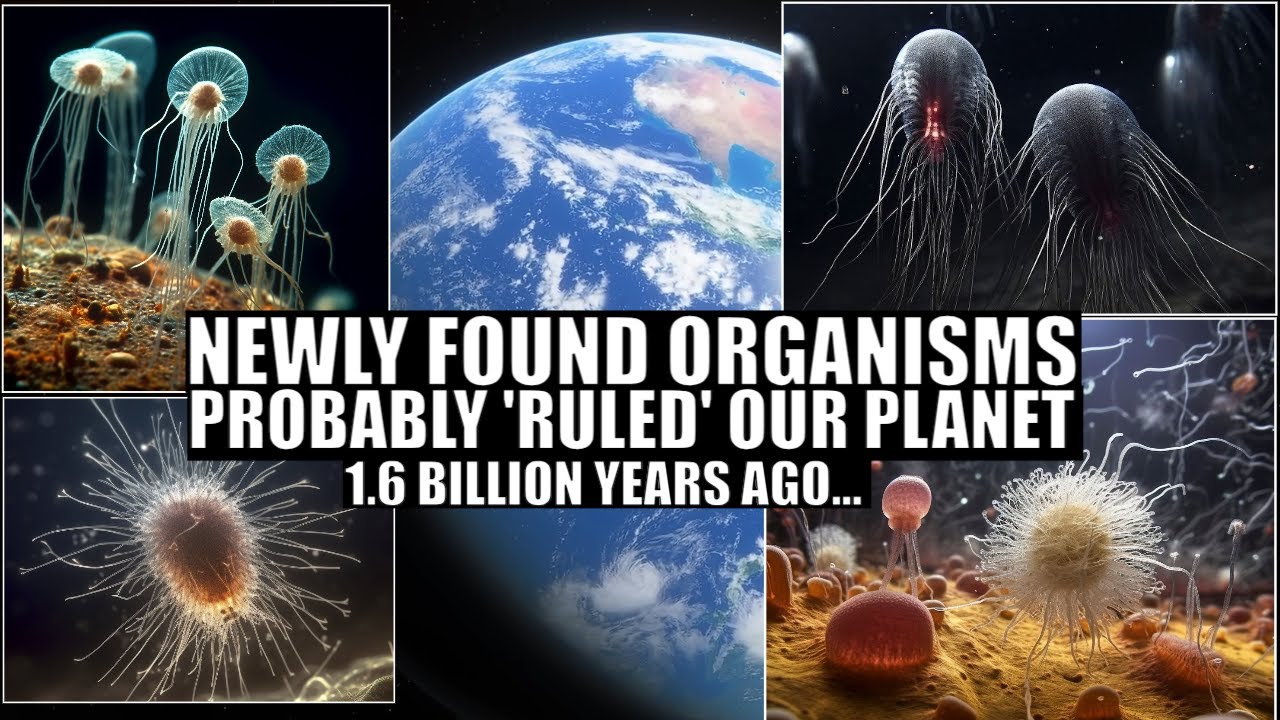The period of time between 1.8 and 0.8 billion years before the present in the history of the Earth has been called the “Boring Billion”, as there is no evidence of major tectonic events, climate change (including glaciations), or rapid evolution in biology. Although eukaryotic organisms may have evolved early in the era, they appeared to play a minor part in the Earth’s ecosystem until exploding into prominence at its end in the Tonian period.
A paper published in Nature on 2023-06-07, “Lost world of complex life and the late rise of the eukaryotic crown”, suggests we may have overlooked an abundant and diverse population of organisms that flourished during the “Boring Billion”. Here is the abstract:
Eukaryotic life appears to have flourished surprisingly late in the history of our planet. This view is based on the low diversity of diagnostic eukaryotic fossils in marine sediments of mid-Proterozoic age (around 1,600 to 800 million years ago) and an absence of steranes, the molecular fossils of eukaryotic membrane sterols. This scarcity of eukaryotic remains is difficult to reconcile with molecular clocks that suggest that the last eukaryotic common ancestor (LECA) had already emerged between around 1,200 and more than 1,800 million years ago. LECA, in turn, must have been preceded by stem-group eukaryotic forms by several hundred million years. Here we report the discovery of abundant protosteroids in sedimentary rocks of mid-Proterozoic age. These primordial compounds had previously remained unnoticed because their structures represent early intermediates of the modern sterol biosynthetic pathway, as predicted by Konrad Bloch. The protosteroids reveal an ecologically prominent ‘protosterol biota’ that was widespread and abundant in aquatic environments from at least 1,640 to around 800 million years ago and that probably comprised ancient protosterol-producing bacteria and deep-branching stem-group eukaryotes. Modern eukaryotes started to appear in the Tonian period (1,000 to 720 million years ago), fuelled by the proliferation of red algae (rhodophytes) by around 800 million years ago. This ‘Tonian transformation’ emerges as one of the most profound ecological turning points in the Earth’s history.
Here is a press release from Australian National University aimed at a popular audience, “Scientists discover ‘lost world’ of our earliest ancestors”.
"Modern forms of eukaryotes are so powerful and dominant today that researchers thought they should have conquered the ancient oceans on Earth more than a billion years ago.
"Scientists have long searched for fossilised evidence of these early eukaryotes, but their physical remains are extremely scarce. Earth’s ancient oceans rather appeared to be largely a bacterial broth.
"One of the greatest puzzles of early evolution scientists have been trying to answer is: why didn’t our highly capable eukaryotic ancestors come to dominate the world’s ancient waterways? Where were they hiding?
“Our study flips this theory on its head. We show that the Protosterol Biota were hiding in plain sight and were in fact abundant in the world’s ancient oceans and lakes all along. Scientists just didn’t know how to look for them — until now.”
Professor Jochen Brocks from ANU, who made the discovery with Dr Nettersheim, said the Protosterol Biota were certainly more complex than bacteria and presumably larger, although it’s unknown what they looked like.
“We believe they may have been the first predators on Earth, hunting and devouring bacteria,” Professor Brocks said.
